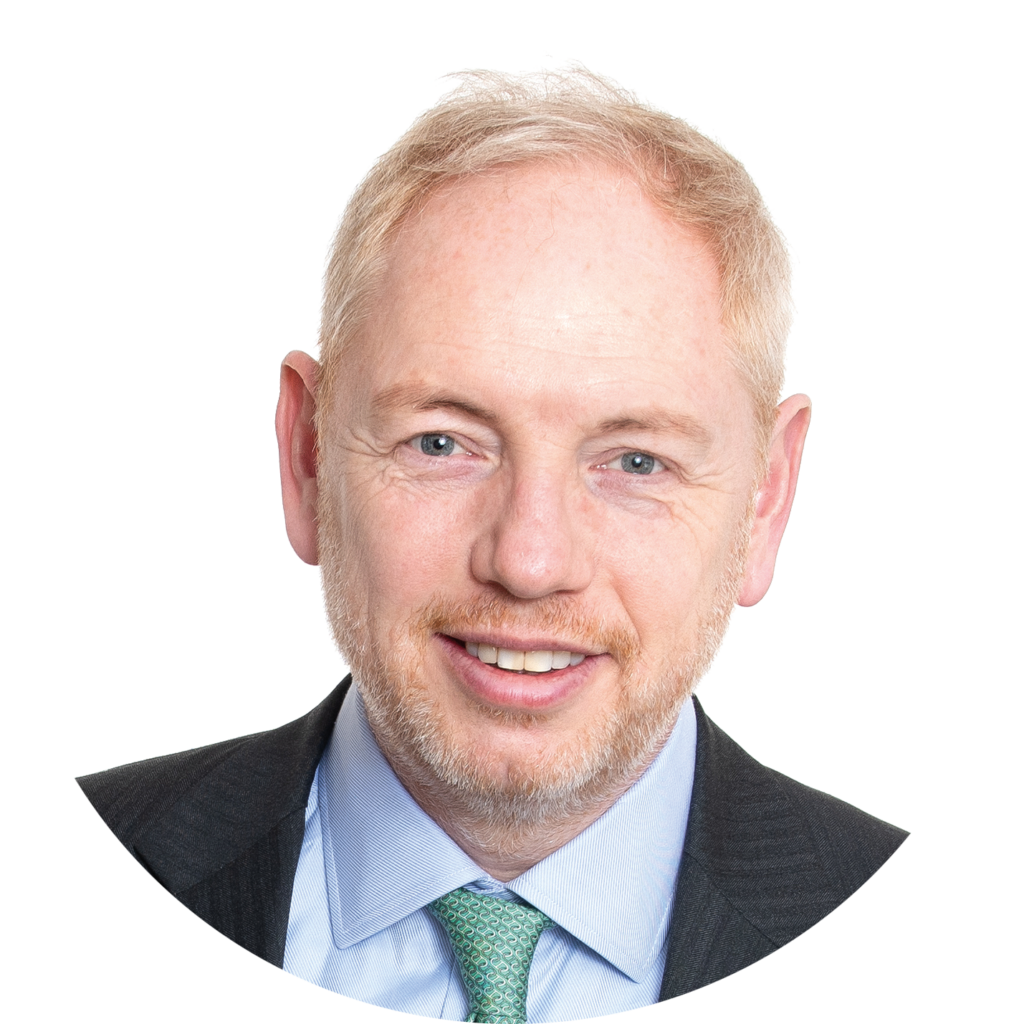According to Dr. Eelco Fiole, while most commerce degrees address ethics, there aren’t many programs targeting leaders and executives, who face ethical dilemmas all the time. His Beyond ESG: purpose and sensemaking in complex finance program at Amsterdam Institute of Finance (AIF) is targeted at senior decision-makers and their advisors and supervisors in finance and investments.

Dr. Eelco Fiole, CFA has been a finance professional his whole career, but when he achieved a senior role quite early in his working life in his late 20s, he started to be faced with tough business decisions with far-reaching implications. Aware of the ethical component in decisions, he began to look for frameworks to help make the best decisions possible, and eventually ended up taking a degree in applied ethics, and then teaching ethics. He approached AIF to run an ethics program specifically targeting senior business leaders in finance.
“I see a lot of financial firms running into trouble because they take executive decisions without really understanding the ethical implications,” he says. “Often, there is no negative intent, but we see negative consequences. I believe that ethics – or moral philosophy, by another name – offers a number of analytic tools that can help us become more aware of ethical components. And awareness drives insights, and better decision-making.”

Eelco is a CFA and the co-founder and managing partner of Alpha Governance Partners, a fiduciary services partnership with partners serving as risk governance specialists in complex investments, blockchain, sustainability and fintech, across Europe, North America and Asia. He is also adjunct professor of finance ethics at the Universities of Lausanne and Neuchatel, holds a PhD in economics (Basel) and degrees in applied ethics (Zurich), positive leadership (Madrid), social innovation (Cambridge), blockchain technologies (Barcelona), laws (London), business administration, and mechanical engineering (both Rotterdam).
He says his program asks people to leave their personal ethics and socialization outside the classroom at first and aims to introduce them to ethical frameworks for decision-making. He examines the overlap between ethical thinking and economic and legal thinking. “Economic thinking is oftentimes characterized by cost / benefit analysis. You have scarce resources, so how do you decide how to divide those. We have detached the ethical component of that decision. Yet there are all kinds of assumptions in financial modelling, which actually have big ethical considerations,” he says.
“In legal thinking, our laws are founded on agreed norms. We agree that this is how we should behave, then we code that into law, and this is how we run society. However, that norm is typically the minimum on which we can agree, so it doesn’t have any ambition about what we could achieve. And it also relates to the value agreement of yesterday. What we agreed on yesterday is today the norm, and we hope that this sort of remains valid into the future. But values change, and as a result, at times it is difficult to find laws that actually then reflect what we really value what we want to see in society.”
Eelco believes that rather than starting to examine a business decision through the lens of solely “is it economical?” or “is it legal?” leaders should first be asking “is it ethical?”
Finance professionals and other business decision-makers are confronted with ethical issues every day, whether they realize it or not. “Many of these revolve around conflicts of interest,” says Eelco. “They are all over the place. And people think that when they identify a conflict, they will have the judgement to deal with it, but that is exactly where I think things go wrong. Many times, we don’t really identify the conflict, or it’s baked into the business. For example, in financial services firms that house a multitude of activities under one roof. If you run a firm that manages funds, but also offers private banking services, the question might be whether you sell your own fund to your banking client, which would allow you to charge fees twice. Is that the right thing to do? Maybe it is, maybe it isn’t. Whatever you believe, this conflict needs to be managed because you have fiduciary duties you need to uphold when you are looking after other people’s interests.”
Eelco says that with ethical questions, there’s often no definitive answer and the aim is to try to find the best answer, not the “one” answer. This is why although regulation plays an important role, it’s not enough. There are many ethical issues that cannot be captured in a regulatory checklist. Ethical frameworks are required to navigate these challenges with wisdom.
Corporate governance is one field that is fraught with ethical challenges, and Eelco says that it deserves exploration on its own. He defines governance (which extends beyond corporate governance to incorporate aspects like investment governance) as “the mechanism through which the interest at stake gets represented in decisions, and the other way round – where decisions do justice to the interest at stake.”
He says governance goes to the heart of an organization’s purpose, and he is also interested in tackling the concept of justice. “If you start with that, you get to concepts like human flourishing and dignity and these kinds of things. Then you arrive at the true purpose of a financial services firm, other than only ESG for example, which is where everybody’s focusing nowadays.”
In his program, Eelco deals with this in a section on how ethics relates to societal needs as proxied by the Sustainable Development Goals.
“Something that is important to recognize is that leaders want to apply judgement well, but they’re faced with a huge amount of uncertainty,” he says. “While financial models are hugely important, to navigate difficult decisions we also need to train up our judgement skills. We need to find ways to not only avoid risks in terms of real cost, but in opportunity cost too. Indeed, just understanding psychological biases, while important, is not enough. Actively considering what is the right thing to do is where the meat of the issue lies.”
For more information about the Beyond ESG: purpose and sensemaking in complex finance program at Amsterdam Institute of Finance, visit the program page.